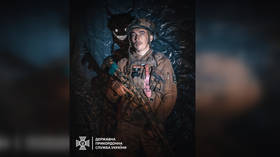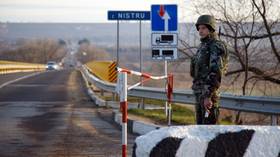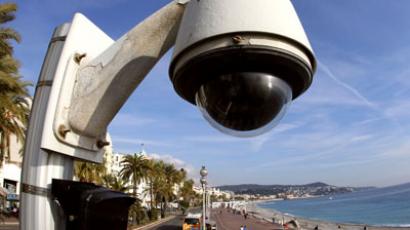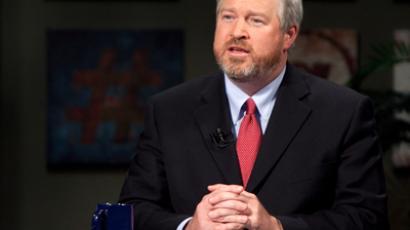Seattle considering $1.6 million facial recognition surveillance system
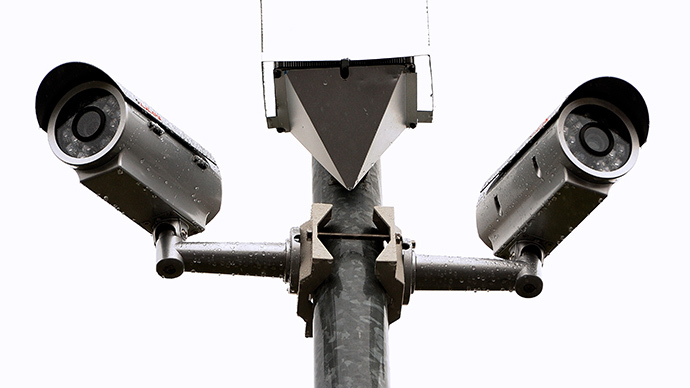
Privacy advocates in the Pacific Northwest are squaring off with local police over plans to install a system that would link surveillance camera video with databases containing photographs of hundreds of thousands of area residents.
In Seattle, Washington, the City Council will soon decide on whether or not they should approve an ordinance that green-lights a $1.6 million federal grant, a large chunk of which will be used to purchase sophisticated facial recognition software that supporters of the measure say would help stop crime.
Those Department of Homeland Security dollars would let the Seattle police pay for software that digitally scans surveillance camera footage and then tries to match images of the individuals caught on tape with any one of the 350,000-or-so people who have been photographed previously by King County, Washington law enforcement.
“An officer has to reasonably believe that a person has been involved in a crime or committed a crime” before they begin to use the program, Assistant Seattle Police Chief Carmen Best told KIRO-TV this week
Once the facial recognition software is initiated, though, it scours a collection containing close to a half-a-million area residents — including many who may never have been convicted of a crime.
That database, members of the local Seattle Privacy anti-surveillance collective say, is composed of more than just the mug shots of convicted criminals. Images of anyone ever arrested and booked are included in that system, regardless of whether or not they were ever ultimately convicted of a crime. And according to a recent post on the Seattle Privacy website attributed to founding member Jan Bultmann, there has already been mention of perhaps someday including the driver’s license photos of the millions of adults across Washington state into that same system.
As currently proposed, though, “It would be a great way to expedite some searching we’re already doing,” Assistant Chief Best said of the plans during a City Council committee meeting earlier this month, the Seattle CrossCut reported. “This only allows us to do it much more quickly and much more efficiently, with a little bit more efficacy.”
On Wednesday this week, the City Council’s Public Safety, Civil Rights and Technology Committee met to discuss whether or not it should approve that DHS Urban Area Security Initiative (UASI) grant in the amount of $1,645,955, and in turn purchase that “booking photo comparison software” and also amend the Seattle Police Department manual to include a section on properly using the product. The full council is now expected to vote on the measure early next month, but in the meantime privacy advocates are asking the city to consider the possible implications of moving forward.
Of particular concern, Seattle Privacy says, is the city’s rather sordid past with regards to not just surveillance, but police misconduct. The Seattle PD has previously used DHS money to fund spy projects later canned over public outcry, and a federal investigation concluded by the United States Department of Justice in 2012 found that local officers acted in an “unconstitutional and excessive manner” during nearly 20 percent of all instances involving the use of force.
"Anytime you've got the officers, you know, routinely — 20 percent of the time — violating our constitutional rights, that's a huge problem,” Chris Stearns, a lawyer on the city's Human Rights Commission, told NPR after the DOJ report was released.
But nearly two years later, the city is again being blasted by civil rights advocates for allegedly being in violation of another constitutional guarantee — the Fourth Amendment’s right to be free from unlawful searches. Although the Seattle PD has promised it won’t use its booking photo comparison software to track suspects on-the-fly if the project has moved forward, opponents fear residents will be worried over the possibility of 24/7 monitoring to enough of a degree that will impact how people associate and assemble in public.
The Booking Photo Comparison Software, Seattle resident Phil Mocek argued at Wednesday’s meeting, “may be used to target activists and do real-time ID of people on the street,” according to a tweet by Seattle Privacy founding member Lee Colleton. And while the Seattle PD’s draft manual for using that system currently includes provisions preventing a link-up with live camera feeds, it does not include any measures saying how long police might wait to watch a recording, be it five seconds, five minutes or five hours.
"facial recognition photo booking system may be used to target activists and do realtime ID of people on the street" @pmocek@SeattleCouncil
— Lee Colleton (@sleepylemur) February 19, 2014
Once that data is recorded, Public Safety Committee Chair Bruce Harrell told KIRO-TV this week, Seattle law enforcement may elect to share it elsewhere.
“There may be times when the federal government may want to look at that database that may be very appropriate if we have an international terrorist here that might have committed a misdemeanor,” he said.
With the Seattle PD draft rules currently mandating a 42 month retention period, any activity captured if and when the system is approved — even a misdemeanor — can be used by city and federal authorities alike to look for persons of interest three-and-a-half-years down the road.
Despite the possible Orwellian outcome, though, opponents of the measure fear city officials aren’t adequately considering the potential consequences. One witness to Wednesday’s meeting remarked that none of the four testifying experts were privacy advocates, but rather came from either the Seattle PD or DHS, with the exception of a lone Seattle Human Rights Commission representative.
“We need to get some independent technical expertise outside of SPD chain of command to audit this equipment,” Seattle Privacy’s Bultmann opined. Her group has since stated on their website that they will be marking up the draft document themselves “to give councilmembers an example of what a through independent technical review with an eye toward privacy and security would look like, and how useful it would be.”
@sleepylemur@bruceharrell We need to get some independent technical expertise outside of SPD chain of command to audit this equipment
— Jan Bultmann (@JanJBultmann) February 19, 2014
Should Bultmann succeed, then the surveillance program may in fact meet its maker before ever getting off the ground. Strangely enough, it wouldn’t be the first spy program to be stopped in its tracks lately in Seattle. In November the city was forced to deactivate a wireless mesh network system installed in secret across Seattle after privacy advocates exposed how it could be used to track the locations of anyone with a mobile phone in real-time. And among similar outcry, the Seattle PD last February said they wouldn’t proceed with plans to start using surveillance drones across the city.
"DHS has spent billions in black surveillance budgets that brought us drones and cameras we're not even using,” Bultmann said during Wednesday’s meeting.
"DHS has spent billions in black surveillance budgets that brought us drones and cameras we're not even using" @JanJBultmann@SeattlePrivacy
— Lee Colleton (@sleepylemur) February 19, 2014
"Drones give law enforcement agencies unprecedented abilities to engage in surveillance and intrude on people's privacy," Doug Honig, a spokesman for the American Civil Liberties Union of Washington, said in an email to Reuters when the police pulled the plug on the plan earlier in February.
According to the ACLU, however, the facial recognition system being requested by the Seattle PD doesn’t raise any red flags as of right now. ACLU of Washington privacy counsel Doug Klunder told CrossCut recently that the police actually approached his civil rights group while drafting procedures for the surveillance system, and he thinks “This policy does a good job of limiting [the software] to proper uses.”
Two states away, however, the ACLU of California is asking city officials in Oakland, CA to reconsider an eerily similar surveillance system being planned there with federal funds. The City Council there voted on Tuesday to postpone a vote pertaining to the future of that major surveillance hub under construction — the Domain Awareness Center, or DAC — after 79 speakers signed up to rally against the project during the hearing.
Oakland Police were video taping anti-surveillance activists at City Council meeting tonight. #DAC#OAKMTG via @guelopic.twitter.com/RlTynCD40N
— Domain Awareness (@domainawareness) February 19, 2014
Tuesday's meeting in Oakland ended after more than four hours with the council agreeing to wait another two weeks before deciding if they should proceed with plans to use $1.6 million they’ve been offered by the DHS to proceed with the next stage, phase 2. The city installed 137 security cameras on the Port of Oakland, 50 traffic cameras across town and a system of gunshot-detecting microphones as part of the recently completed phase 1.


